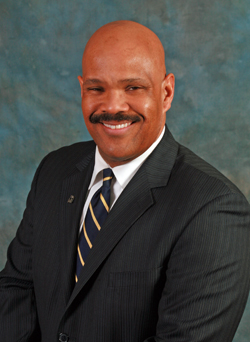
Small Talk recently interviewed Mr. Aubrey W. Lee, Jr., Vice President, Resident Director for Merrill Lynch, in Novi. Lee provides clients with best in class service while offering customized solutions to expertly handle all of their financial needs utilizing the powerful resources available within Bank of America Merrill Lynch.
We asked for his thoughts on small business development across Southeast Michigan.
ST: How important is small business development to Detroit’s economic recovery?
AWL: Small business has largely been at the crux of the country’s economic recovery, and the same holds true here in Detroit. It has served as the barometer both for economic health and recovery. We know that small businesses employ more people than large size companies, and because it is ultimately jobs that will help foster the economic recovery, small business development will be very important to Detroit’s economic recovery.
ST: What trends have you noticed across the region?
AWL: We have seen that some small business owners are cutting back on their own salaries as a savings mechanism and to retain valued employees. Regarding credit, obtaining it has emerged as a critical problem for small businesses across Southeast Michigan. At Bank of America Merrill Lynch, we partner with our clients to explore creative solutions for loans and capital.
Finally, in light of economic conditions, more businesses are looking to do more with less, at less cost. This new, more conservative approach to business operations will likely continue to be a trend as business owners navigate uncertain terrain and prepare for unforeseen circumstances.
ST: What have been the most significant contributors to small business failures?
AWL: As mentioned, since the financial crisis, it has become even more challenging for small businesses to obtain credit needed to start or grow their business. Because the crisis has made small companies more vulnerable, banks are more cautious in issuing loans. As a result, small businesses have lacked upfront capital that is necessary to succeed. Additionally, many small businesses focus solely on obtaining work versus their short and long-term visions for growth and sustaining revenue.
ST: Do most small businesses have a financial plan? If not, why?
AWL: Unfortunately, most small businesses do not have financial plans, and the ones that do have financial plans often fail to stick to them. Often they will create an initial plan for the bank in order to obtain a loan; however, they do not create a formal financial plan for the long-term.
ST: What resources are available by Merrill Lynch?
AWL: We are committed to providing small business owners with the personalized advice and resources they need to address their evolving challenges and priorities. A relationship with a Merrill Lynch Financial Advisor affords small business owners and their employee’s access to a comprehensive range of financial solutions, as well as ongoing product and service innovations, backed by one of the nation’s largest lenders to small business.
Merrill Lynch Financial Advisors collaborate with business owners to ensure that their strategic business plan is locally focused and tailored to the specific needs of the business owner and his/her employees.
ST: What specific advice would you give to start ups versus those who are more established but have stalled?
AWL: It is important that startup companies carefully evaluate their business model and offerings to account for market conditions and obstacles that may hinder their business succeeding. Other key factors to evaluate are the demand for the products or services and competitors in the market place.
Before entering into the market, small business owners should establish two or three “What If” plans. (i.e., “What if things take off fast?”, “What if things start off slow?”,”What if things don’t get started at all?”) This is the time for small business owners to take a rational look at the market/business, rather than waiting until they are too deep in.
I advise small business owners to focus on more than just revenue growth. It is important to pay attention to, and practice good book keeping such as the collection of receivables and timely payment for services rendered.
ST: Is it smart to mix business and personal resources for an entrepreneur?
AWL: < span style="font-size: 10pt;font-family: Arial">As always, it’s important to proceed with caution when mixing business and personal resources as an entrepreneur. Though friends and family can be helpful, there should be a clearly outlined plan for how resources will be utilized. Before committing personal resources of their own, investors must first carefully consider the implications and their overall financial well-being. We encourage business owners to partner with their financial advisors to maintain accurate records reflecting personal funding. This is also a good practice for tax purposes.
Editor’s Note. To reach Aubrey Lee, Jr., call 248.348.3990 or email: aubrey_leejr@ml.com You can reach Small Talk columnist Mark Lee at www.leegroupinnovation.com or email by email: mark@leegroupinnovation.com. You can also follow him on Twitter, Linked In and Facebook
